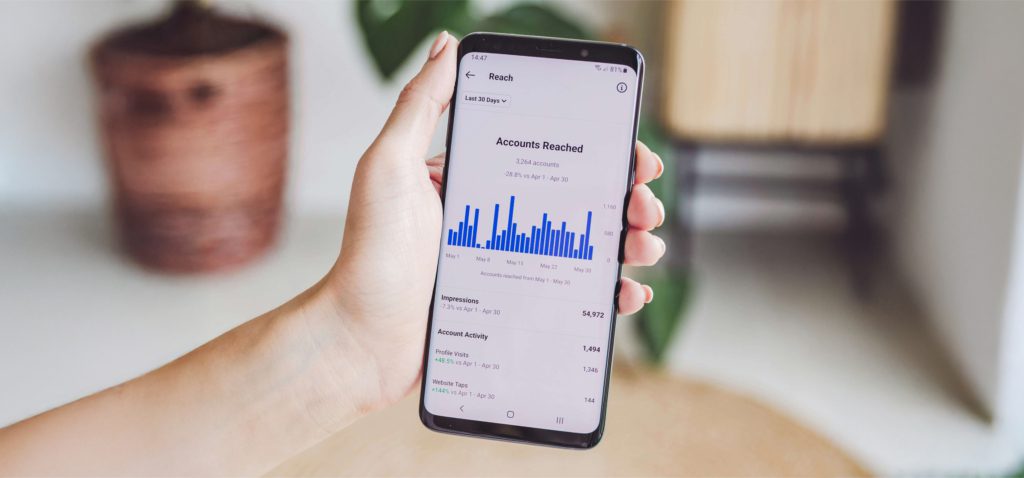Managing a body of content is like gardening – it requires regular maintenance, and from time to time you will need to decide whether to cut parts of it away or nurture it to let it grow.
The question of whether to improve or retire content once you have identified issues with it can be a tough one, as you don’t want to waste time on content which shouldn’t be saved – or cut content which had potential to bring in traffic and conversions if you’d given it a little TLC.
To assist with making these decisions, here are our top 5 questions you should ask when deciding whether to hold onto your content – or cut it loose.
1. Does the page receive consistent traffic and engagement?
Content doesn’t need to be in position one of the SERPs to be considered a success. If your page is consistently receiving a stream of traffic, chances are it is still making an impact on your overall SEO efforts.
A further indicator that the page has potential is proof of engagement – dig into your analytics tool and find out the average dwell time, plus other information such as whether users click onto other pages afterwards.
It may be that you mark this page for an update to give its traffic a boost. Alternatively, you may dig into analytics and discover that the page was receiving traffic, but it has dwindled to nothing in recent months. In such a situation, your page is likely experiencing content decay – so it will need an update to restore it to its former glory.
2. Is the page competing with another for the same keyword?
When you perform your content audit, you may find that there are multiple pages which have been optimised for similar keywords and the same search intent. In such a situation, it’s possible that these pages are competing amongst each other in the SERPs.
This is known as keyword cannibalisation, and you will be able to spot it if you notice that your rankings have become volatile, different pages rank for identical terms at different times and pages are flittering in and out of the index against certain queries.
Find your offending pages and identify which one you want to rank for specific keywords. Decide whether it would be better to merge the other pages with this one or retire them. In some situations, you may also decide to redirect old URLs to the new one, deoptimize or no index content.
3. Is it realistic to expect higher rankings after improvements?
You may have bookmarked a page for an update after deciding that it has potential, especially if it was receiving traffic in the past but it has simply declined due to lack of care over time. However, it’s worth considering the wider contextual search landscape and analysing the chances of the page receiving higher rankings after you have made the improvements.
For example, if several competitors have entered the market since you last updated the page and written on the topic, you may not find much value in working on the content right now – especially if your competitors have stronger domain authority. Your time may be better spent working on your digital PR efforts, or finding tangential topic niches that a competitor analysis reveals other brands aren’t capitalising on.
4. Does the content contribute towards achieving a specific goal?
Every piece of content on your site should be focused on a specific marketing goal. For example, it may help your ranking for a specific keyword, be designed to attract backlinks or drive conversions. If you identify pages which are not aligned with any measurable metrics, then decide whether it can be retargeted for a specific purpose or not.
It may be the case that it would take too much time to refocus the piece, in which case you would be better off retiring the page and working on your other content. However, the page could have enough potential that you can see it being a game changer.
For example, the content could be turned into an authoritative document you could repurpose in a digital PR campaign. Perhaps the page may need tweaking to target an informational keyword with significant search volume that your site has a good chance of ranking highly for.
5. Does the content add original information and insight?
One of the metrics Google uses as part of its EEAT criteria is originality. In other words, content should serve a purpose beyond driving clicks onto a website. If your content has been rewritten from other sites without any original insight being included, then it isn’t realistic to expect it to perform well over time against Google’s organic search algorithms.
Whenever you publish content, you want to ensure that you are serving your target audience information they wouldn’t easily have found elsewhere. As the content creator, you must be in a position of expertise and have the ability to impart your knowledge on readers to the extent that they will be left feeling positive about their experience on the page.
Whether they engage with the page for a long time to properly absorb the information, get excited enough about it that they share it with their network or develop a favourable enough impression of your brand that they make a purchase or send an enquiry, all these actions will be viewed positively by search engines.
Need help with your content strategy?
If you’re struggling with creating a focused content strategy or feel unsure about whether to retire a page, we are on hand to help. Get in touch and find out how we can bring your SEO content back to life.
Alternatively, book a Free Acquisitions Workshop to find out how you can supercharge your organic traffic strategy, uncover opportunities to revitalise your content. Slots are filling up fast, so book today to avoid disappointment!












